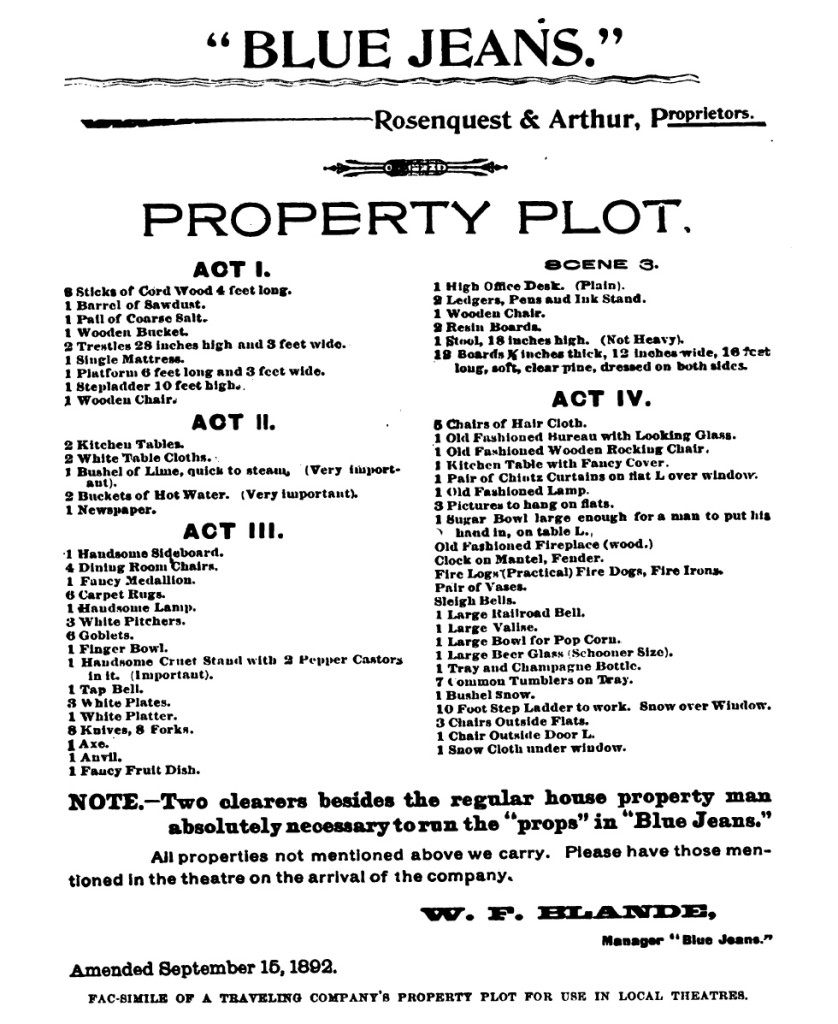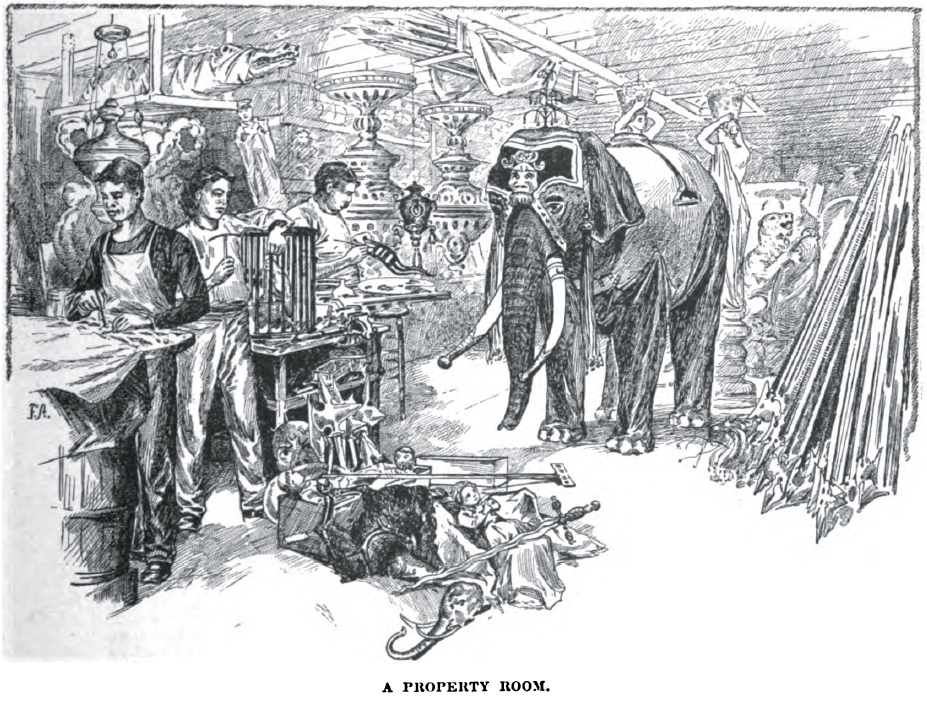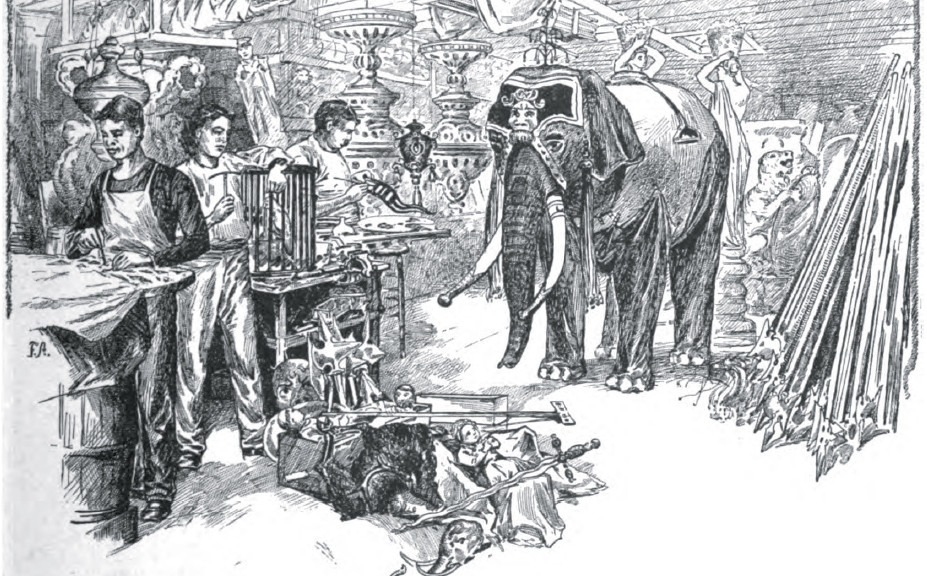I came across an article titled “How a Play is Produced” in the 1893 collection of Popular Monthly magazines. It has some wonderful illustrations and useful information that I might post at some point in the future, but I first wanted to share a few of the prop-related items from the article.
First up is a facsimile of a property plot sent out to theaters from a traveling production of Blue Jeans.

The article also has a fine description of the props master at the time (almost exclusively men at this time):
The “property” man is another important individual, and has several assistants. His work consists in taking charge of and providing all the movable articles used in the play, such as furniture, carpets, clocks, costumes, guns, umbrellas, books, newspapers, plates, glasses and eatables. These last are usually of the customary property quality, i.e., papier-maché, and the “property man” is the culinary artist who manufactures them. It is no uncommon thing, on inquiring for the “property man” in a theatre, to be told that he is upstairs “making a chicken.”
Finally, we have this wonderful illustration of a property room:

Source: Hornblow, Arthur. “How a Play Is Produced.” Popular Monthly 1893: 614-22. Google Books. Web. 6 Jan. 2016.

